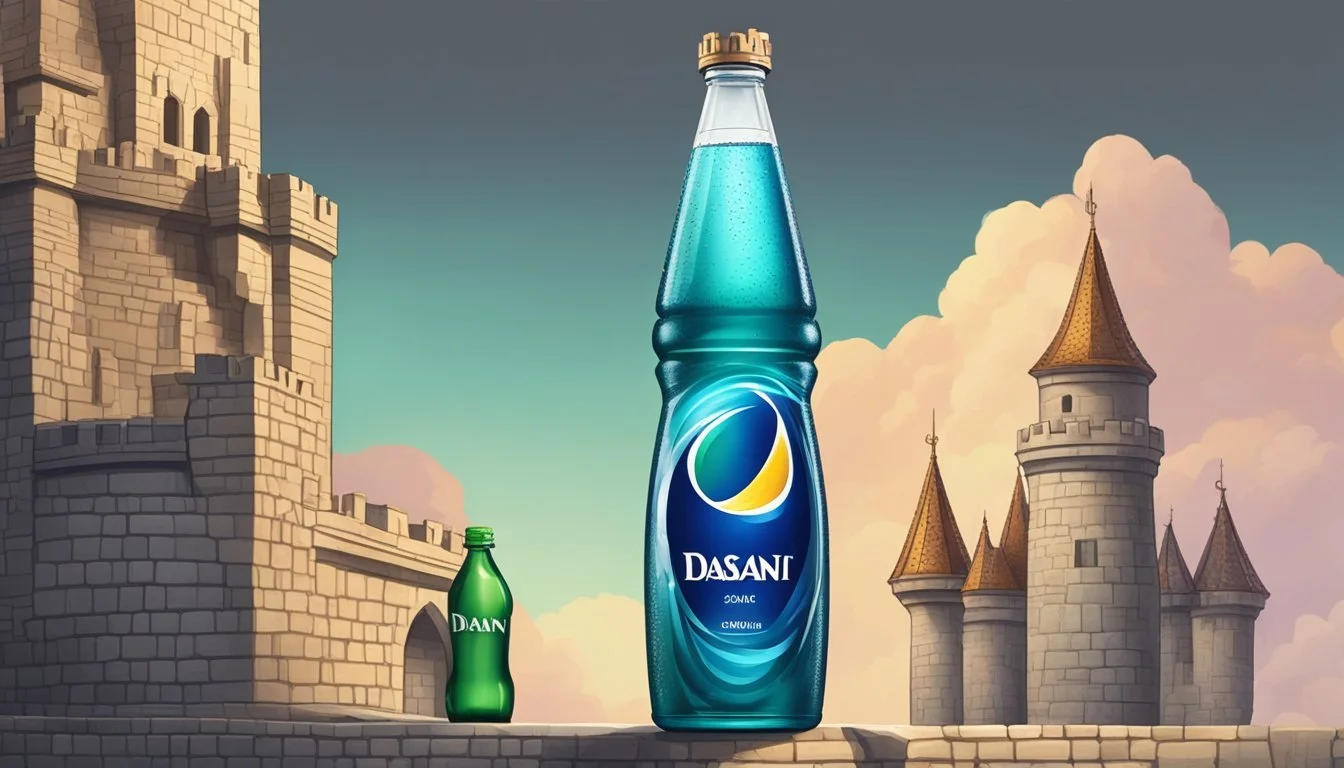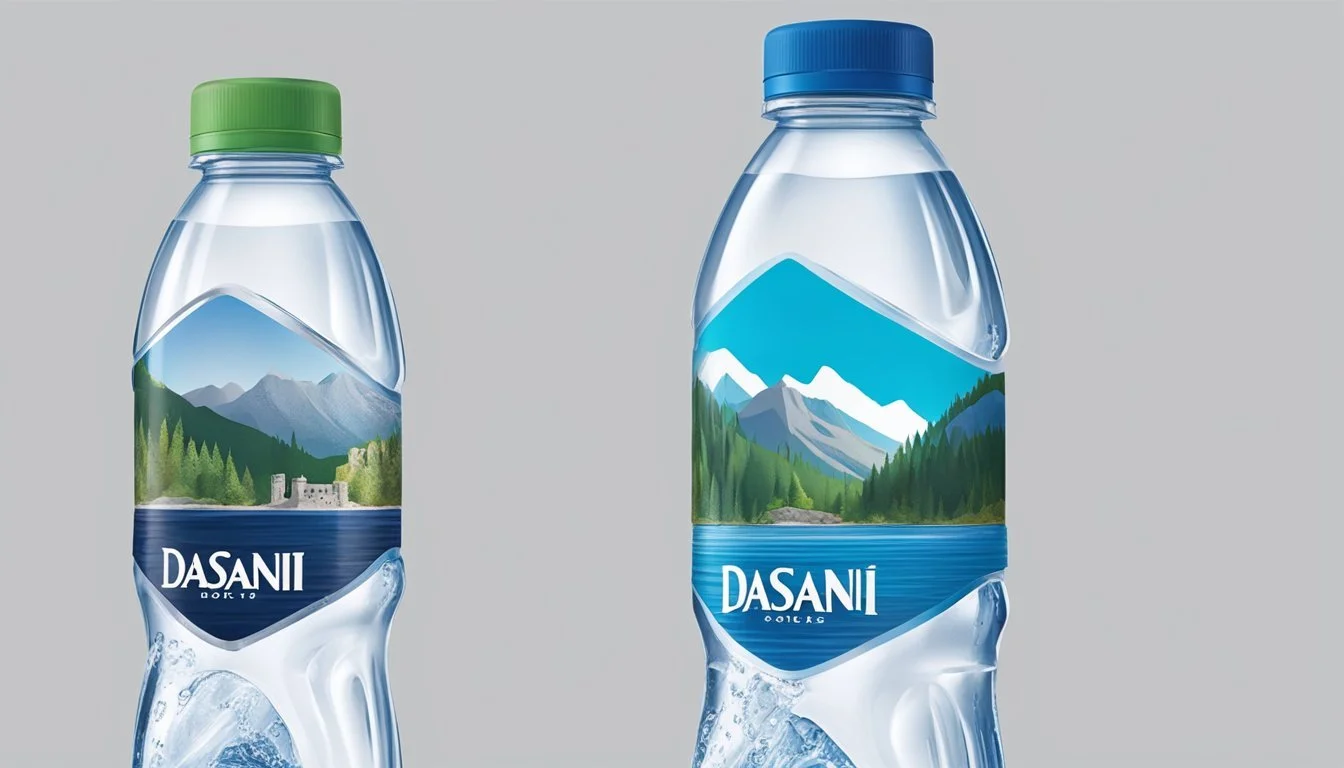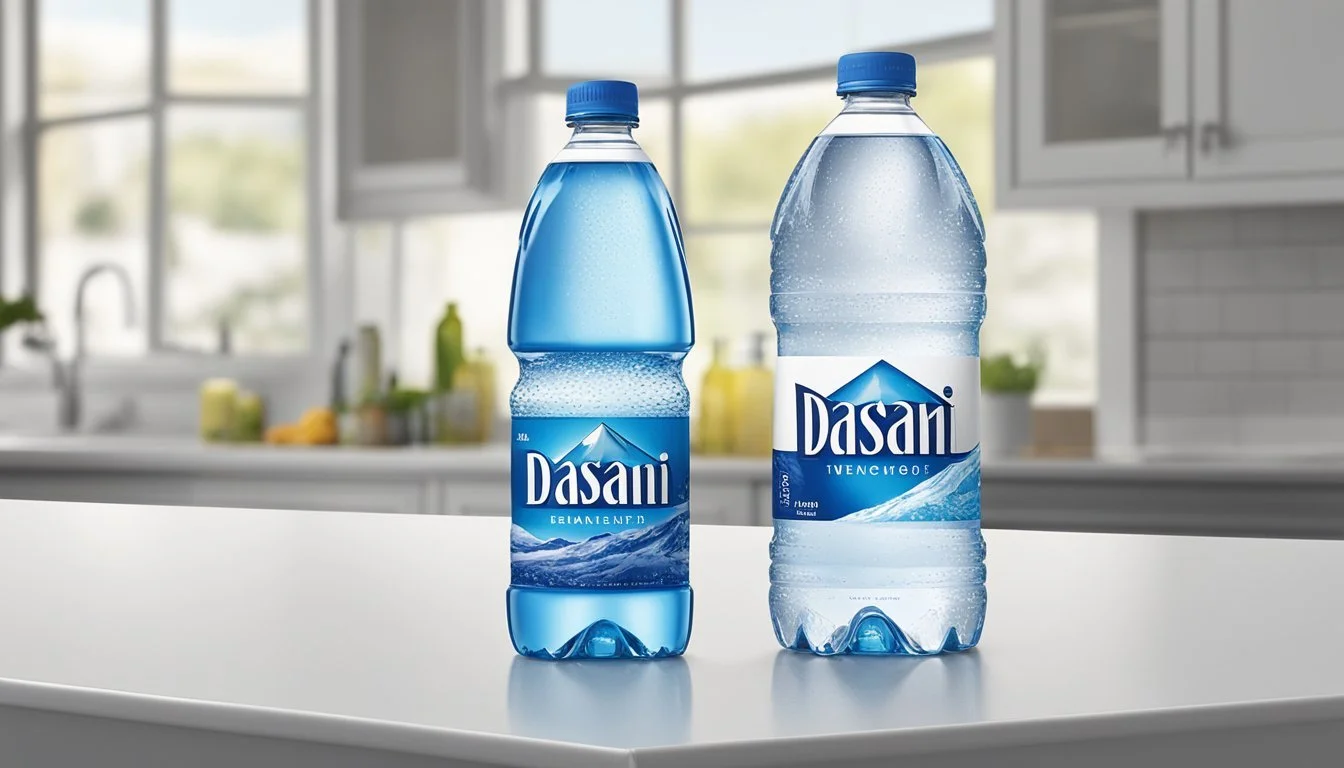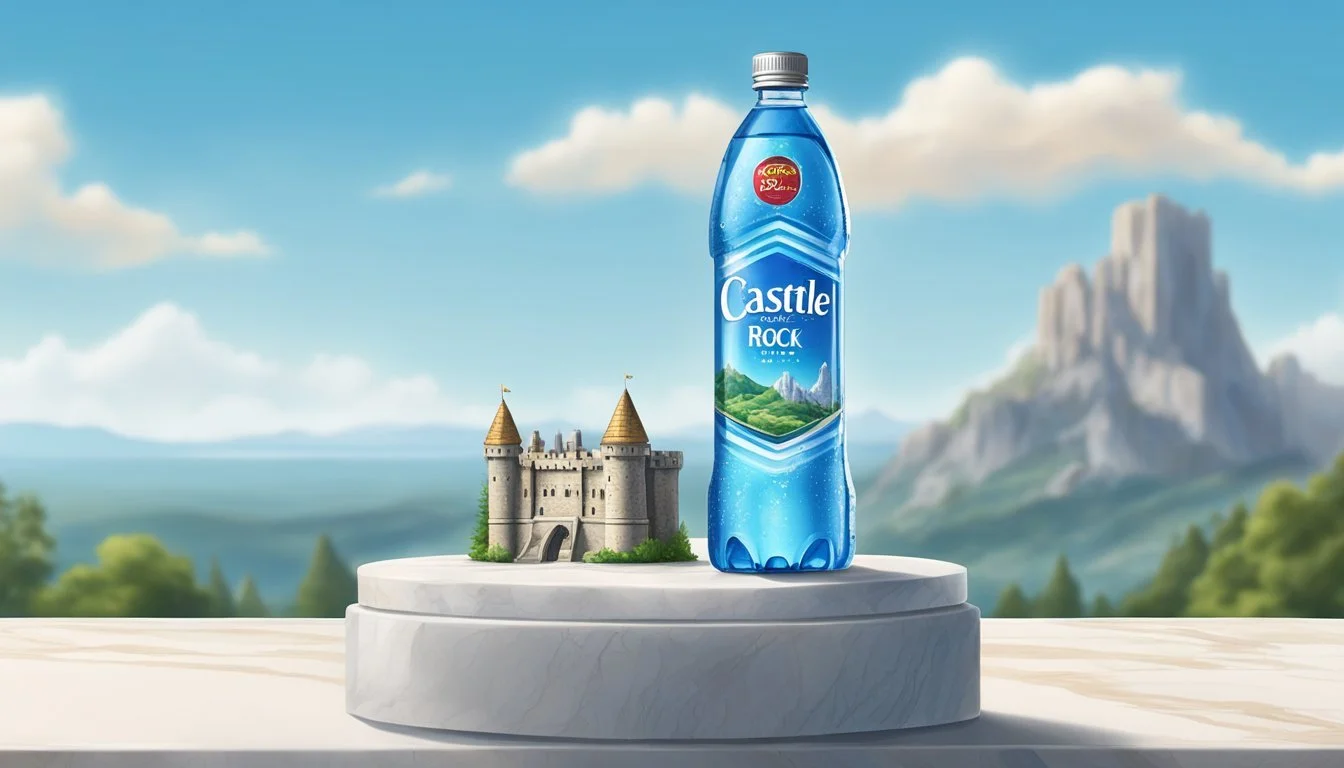Castle Rock vs. Dasani
Comparing the Best Bottled Waters
Castle Rock and Dasani are prominent names in the bottled water industry, each with its own loyal customer base and unique attributes. Examining the quality, taste, and nutritional content of both brands reveals marked differences and preferences among consumers. Castle Rock offers naturally sourced water with a crisp, refreshing taste, while Dasani relies on purified municipal water enhanced with minerals to create a distinct taste profile.
The choice between Castle Rock and Dasani often boils down to personal preference and priorities. For those who prioritize natural sourcing and minimal processing, Castle Rock stands as a solid option. Dasani appeals to those who prefer a consistent and accessible product, often enhanced with added minerals for taste. Ultimately, Castle Rock is favored for its natural taste, while Dasani is appreciated for its accessibility and consistency.
Readers will find an in-depth comparison in the following sections that scrutinizes these two brands across various criteria, helping to determine which bottled water might be the best fit for their needs.
Evaluating Bottled Water Brands
When comparing bottled water brands, such as Castle Rock and Dasani, it is crucial to consider industry standards and water quality reports. These factors help consumers make informed decisions on which brand suits their needs.
The Role of the International Bottled Water Association
The International Bottled Water Association (IBWA) sets rigorous standards that bottled water brands must adhere to. Membership in the IBWA signals a commitment to high quality and safety.
Brands that comply with IBWA standards are subject to annual, unannounced inspections. These inspections cover a wide range of areas including sanitation, labeling, and the sourcing of water. Such rigor ensures that consumers receive products that meet stringent safety benchmarks.
Castle Rock, for example, follows IBWA guidelines, ensuring its spring water is of consistently high quality.
Understanding Water Quality Reports
Water quality reports are essential for evaluating bottled water brands. These reports provide detailed information about the water's source, treatment, and contents.
Brands like Dasani publish water quality reports, offering transparency and allowing consumers to assess the purification methods used. Dasani uses a combination of reverse osmosis filtration and added mineral salts to enhance taste.
Castle Rock’s reports emphasize the purity of its natural spring source, highlighting minimal processing and natural mineral content. Reviewing these reports enables consumers to compare the purity and safety of different brands effectively.
By focusing on these reports, consumers can better understand the differences between bottled water brands and their commitment to quality.
Understanding both the role of the IBWA and the specifics of water quality reports helps consumers make informed decisions. This knowledge serves as a foundation for choosing the best bottled water brand for one’s needs.
Assessing Castle Rock and Dasani
Both Castle Rock and Dasani offer unique qualities regarding their company backgrounds, purification processes, and source origins. Their differences in approach and natural resources distinguish them in the crowded bottled water market.
Company Profiles
Castle Rock:
Castle Rock Water Company prioritizes sustainability and environmental responsibility. It sources its water from the pristine springs of Mount Shasta in California. Their commitment includes using 100% recycled PET bottles and supporting local communities.
Dasani:
Owned by The Coca-Cola Company, Dasani was introduced in 1999. Focusing on creating a consistent taste profile, Dasani water undergoes reverse osmosis filtration before being enhanced with a proprietary blend of minerals. This process ensures a fresh and crisp taste.
Source and Origin of Water
Castle Rock:
Castle Rock sources its water from Mount Shasta’s natural springs. This spring water is known for its purity, originating from snowmelt and rainwater filtering through volcanic rock. This natural process enriches the water with essential minerals, providing a refreshing and clean taste.
Dasani:
Dasani’s water is typically sourced from municipal water supplies and undergoes extensive purification. The reverse osmosis process removes impurities, and the water is then re-mineralized. This method ensures a consistent taste and allows for quality control across different regions.
Composition and Purity
Castle Rock and Dasani bottled waters differ significantly in their composition, mineral content, and purity levels. Understanding these differences is crucial for making an informed choice.
Mineral Content and Additives
Dasani is known for incorporating added minerals to enhance flavor. It contains magnesium sulfate, potassium chloride, and a small amount of salt. These additives aim to create a distinct mineral taste but may not appeal to everyone.
In contrast, Castle Rock emphasizes its natural purity. It sources its water from natural springs, ensuring minimal processing. This results in water that contains naturally occurring minerals like calcium and magnesium, without the need for additional additives.
pH Levels and Alkalinity
Dasani typically has a pH range of 5.0 to 7.0, which can fluctuate due to the added minerals and the purification process it undergoes. The neutral pH is intended to offer a balanced flavor but sometimes results in slight acidity.
Castle Rock prides itself on maintaining a naturally balanced pH, often leaning towards the more alkaline side. This reflects its clean and unaltered source, appealing to those who prefer water with higher alkalinity and fewer additives.
Combining these elements, consumers need to decide between the more processed but flavored aspect of Dasani and the naturally sourced purity offered by Castle Rock.
Filtration and Purification Processes
In evaluating the quality of Castle Rock and Dasani bottled waters, the focus will be on their distinct filtration and purification methods, which significantly impact the taste and purity of the water.
Reverse Osmosis and Filtration
Dasani uses reverse osmosis, a method that effectively removes impurities and contaminants such as chlorine and other dissolved solids. This process involves forcing water through a semipermeable membrane, leaving behind undesirable substances. Additionally, Dasani enhances its water with a blend of minerals to improve taste.
Castle Rock, sourced from pristine springs, doesn’t rely on reverse osmosis. Instead, it uses a multi-stage filtration process to ensure pure and clean water. This process includes methods like sediment filtration and activated carbon filtration, which remove particulates and organic compounds, but it generally retains the natural minerals found in spring water.
Ultraviolet and Ozone Treatment
Ultraviolet (UV) light and ozone are alternative methods used to further purify and disinfect water. Dasani utilizes ozonation, which involves infusing water with ozone gas to eliminate bacteria and other microorganisms. This step is crucial in ensuring the bottled water meets safety standards and extends its shelf life.
Castle Rock implements UV light treatment. This method uses ultraviolet light to neutralize harmful pathogens without altering the water’s natural taste or chemical composition. UV treatment is effective and environmentally friendly, providing an additional layer of safety for the end consumer.
These processes highlight the unique approaches taken by Castle Rock and Dasani to deliver high-quality bottled water.
Tasting Profile
Castle Rock and Dasani bottled waters offer distinct experiences in terms of taste, aftertaste, and overall sensory experience. These aspects highlight their unique qualities, appealing to different preferences and needs.
Taste and Aftertaste
Castle Rock water is known for its clean, crisp taste, attributed to its natural spring source in California. This water has a slightly sweet aftertaste due to the natural mineral content. Consumers often describe it as soft and refreshing.
Dasani, on the other hand, has a more processed taste, as it undergoes advanced purification methods. It often has a slightly metallic or chemical aftertaste, which some find unappealing. This is due to added minerals for taste, such as magnesium sulfate and potassium chloride.
Sensory Experience
The sensory experience of drinking Castle Rock water is smooth and velvety. The natural mineral composition provides a refreshing mouthfeel, enhancing the overall hydration experience. Its appeal lies in its gentle profile, making it a favorite for those seeking purity and a natural feel.
Dasani offers a different sensory experience due to its added minerals. The water can feel slightly heavier on the palate. The added elements create a more robust mouthfeel, which some might perceive as less natural. This can be a determining factor for consumers who prefer a more natural tasting water.
Health and Hydration
Castle Rock and Dasani both claim to offer excellent hydration solutions through their bottled water products, but they differ in purification processes and mineral content that could influence their health benefits.
Hydration Effectiveness
Castle Rock sources its water from natural springs, maintaining the mineral balance that might offer better hydration compared to heavily processed water. Natural minerals like calcium, magnesium, and potassium found in spring water are essential for maintaining electrolyte balance, which helps the body's hydration process.
Dasani uses a sophisticated reverse osmosis filtration system. This method removes impurities but also strips the water of natural minerals. Dasani compensates by adding a blend of mineral salts like magnesium sulfate and potassium chloride. These added minerals aim to improve both taste and hydration efficiency.
Safety Considerations
Castle Rock prides itself on offering water that is free from additives and sourced directly from natural springs, ensuring that it is free from contaminants commonly found in tap water. The lack of artificial ingredients and the fact that it meets all regulations for safe drinking water make it a safe choice for daily hydration.
Dasani also ensures safety by following strict purification processes. The reverse osmosis technique effectively removes impurities. Additionally, the water is free from sugar and calories, making it a healthy option. Dasani is also packaged in 100% recyclable bottles, contributing to environmental safety.
Both Castle Rock and Dasani offer distinct advantages for hydration and safety, raising the question of whether one’s preference leans towards natural mineral content or purified water with added minerals.
Environmental and Ethical Considerations
The choice between Castle Rock and Dasani bottled water depends not only on taste and quality but also on environmental and ethical aspects. Key points of consideration include the production and recycling of bottles and the broader environmental impact of water extraction processes.
Bottle Production and Recycling
Castle Rock actively promotes the use of 100% recycled PET bottles, which reduces the need for new plastic production. Their commitment to environmentally friendly practices emphasizes using fewer resources and minimizing waste.
In contrast, Dasani also uses recyclable packaging, including 100% recyclable bottles. However, Dasani has faced criticism regarding the environmental efficiency of its recycling programs. Efforts to reduce plastic waste are ongoing, but consumer awareness and actual recycling rates remain challenges.
Both brands incorporate sustainable practices, yet Castle Rock leverages more extensive use of recycled materials in its bottle production. This difference influences their respective environmental footprints.
Environmental Impact of Water Extraction
Castle Rock Water sources its water from natural springs, which raises concerns about the sustainability of water extraction. The impact on local ecosystems can be significant if not managed properly. Efforts are made to ensure that water extraction does not harm the environment, but the effectiveness of these measures varies.
Dasani, owned by Coca-Cola, uses municipal water sources that undergo reverse osmosis filtration. Given the scale of operations, this method reduces potential impacts on natural water systems. Criticism arises from the energy-intensive filtration process and the large quantities of water needed, raising questions about long-term sustainability.
Both Castle Rock and Dasani adopt measures to mitigate their environmental impact but face unique challenges. Evaluating these practices reveals the complex dynamics of ethical water sourcing and its repercussions on surrounding environments.
Market Presence and Consumer Perception
Castle Rock and Dasani both hold significant positions in the bottled water market, but they differ in retail availability and the trust consumers place in them.
Retail Availability
Castle Rock bottled water is predominantly available in upscale grocery stores and specialty shops. It caters to consumers seeking natural spring water, often preferring the brand for its perceived purity and premium quality.
Dasani, on the other hand, is ubiquitous. It can be found in most major grocery stores, convenience stores, and vending machines across the country. This extensive distribution strategy ensures that Dasani is accessible to a broad spectrum of consumers, making it a convenient choice for many.
Brand Reputation and Consumer Trust
Castle Rock is often perceived as a high-end brand, revered for its crisp flavor and natural origin. It appeals to consumers who prioritize quality and natural sources in their water choices.
Dasani, owned by The Coca-Cola Company, relies on its extensive marketing and brand recognition. It uses a purification process that includes reverse osmosis, enhanced with minerals for taste. Despite its wide availability, some consumers may exhibit skepticism due to its corporate association and water source. Nevertheless, its consistency and taste enhancement foster a loyal consumer base.
Price and Value Comparison
When comparing Castle Rock and Dasani on price and value, each brand offers distinct characteristics.
Castle Rock water tends to be priced higher due to its sourcing. It is often marketed as premium water, sourced directly from natural springs. This can justify its higher cost.
Dasani is usually more affordable, often found in grocery stores and convenience locations. It is purified tap water, which lowers production costs.
Price Range
Brand Typical Price per Bottle (16.9 oz) Castle Rock $1.50 to $2.50 Dasani $1.00 to $1.50
The higher price of Castle Rock may be attributed to its natural sourcing and sustainable practices. For Dasani, production efficiencies and large-scale distribution keep costs down.
Value is subjective and depends on consumer priorities. Those seeking natural sources might prefer Castle Rock, accepting higher costs for what they perceive as better quality.
On the other hand, consumers focused on affordability and availability may opt for Dasani.
Key Points
Castle Rock: Higher cost, natural spring water, eco-friendly packaging.
Dasani: Lower cost, purified tap water, widely available.
Packaging also plays a role. Castle Rock often uses eco-friendly materials, adding to its value proposition. Dasani uses recyclable plastic, making it a more affordable, environmentally-conscious option.
In summary, price differences are mainly driven by sourcing and production methods, affecting consumer choice based on affordability and perceived water quality.
Final Thoughts
Choosing between Castle Rock and Dasani involves considering several factors.
Taste:
Castle Rock is often noted for its crisp, clean taste, derived from natural springs. Dasani, with its blend of mineral salts, offers a smooth and fresh flavor.
Purification Processes:
Castle Rock water undergoes minimal processing to preserve its natural properties. Dasani uses reverse osmosis and adds minerals for taste.
Environmental Impact:
Castle Rock promotes sustainable practices, using eco-friendly packaging and supporting environmental causes. Dasani bottles are 100% recyclable and encourage reuse, but its parent company’s environmental record is mixed.
Nutritional Content:
Castle Rock boasts naturally occurring minerals, beneficial for health. Dasani contains added minerals but remains sugar-free and calorie-free.
Price:
Castle Rock tends to be in the premium price range due to its natural source and eco-friendly initiatives. Dasani is generally more affordable and widely available.
Personal Preference:
For those who prioritize natural sources and environmental responsibility, Castle Rock might be the best choice. Those who prefer a balanced taste with added minerals and wide availability might lean towards Dasani.
Ultimately, the best water can be subjective, depending largely on individual needs and values.








